Request for Raise Letter Template Guide
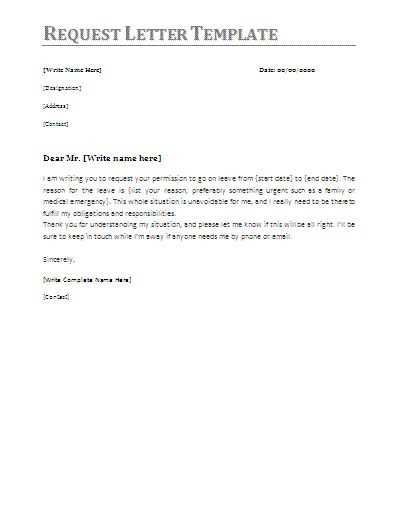
When it comes to advancing your career, knowing how to approach a conversation about compensation is crucial. A well-crafted request can help you communicate your value to the company and increase the likelihood of a successful outcome. This section covers essential tips and guidelines to ensure your request is professional and compelling.
Key Elements to Include in Your Request
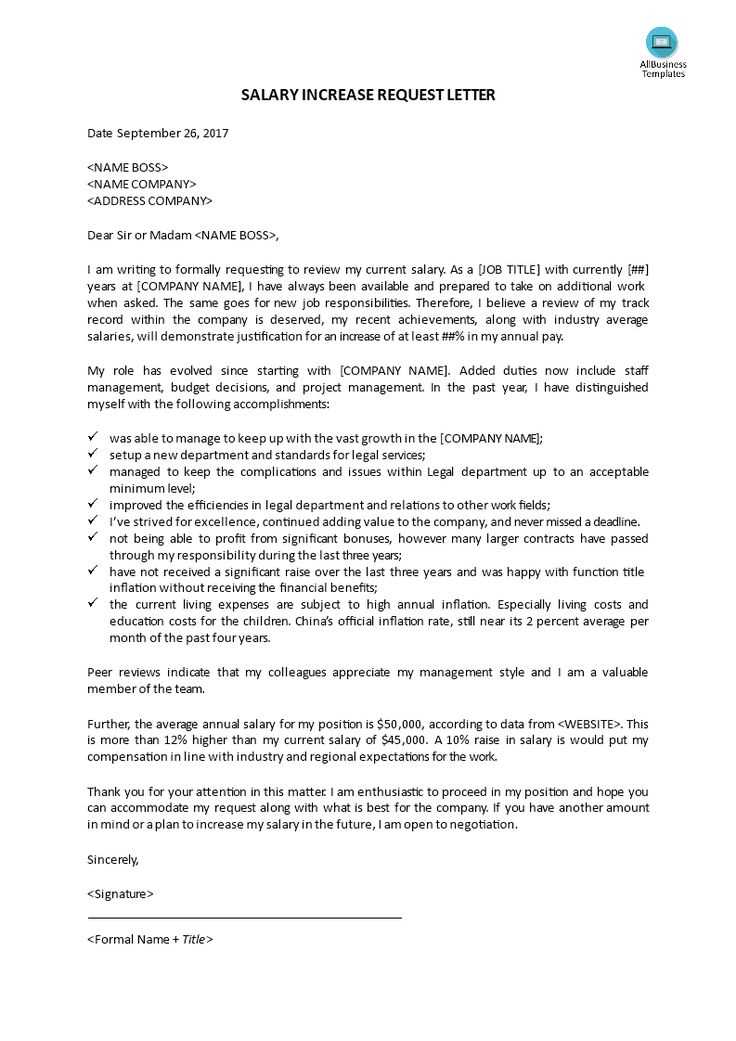
To ensure your message is clear and persuasive, focus on a few important aspects:
- Justification: Clearly state why you deserve a salary increase by highlighting your achievements, skills, and contributions to the organization.
- Timing: Choose the right moment to make your approach, whether it’s after a successful project or during performance reviews.
- Professionalism: Maintain a respectful and professional tone throughout your communication.
- Specific Request: Be precise about the increase you are seeking, providing a clear figure or range based on industry standards.
Avoid Common Pitfalls
There are several mistakes you should steer clear of when asking for a compensation increase:
- Making it Personal: Focus on your professional accomplishments rather than personal reasons for the increase.
- Unrealistic Expectations: Avoid asking for an amount that is far beyond the industry average or company budget.
- Being Vague: A lack of clarity can make your request seem unprepared. Be specific about what you’re asking for and why.
Crafting a Convincing Proposal
Your proposal should be more than just a simple ask. It needs to demonstrate the value you bring to the organization. Emphasize your contributions and any additional responsibilities you’ve taken on. It’s also helpful to align your request with the company’s goals and objectives, showing how your work directly supports its success.
When to Submit Your Request
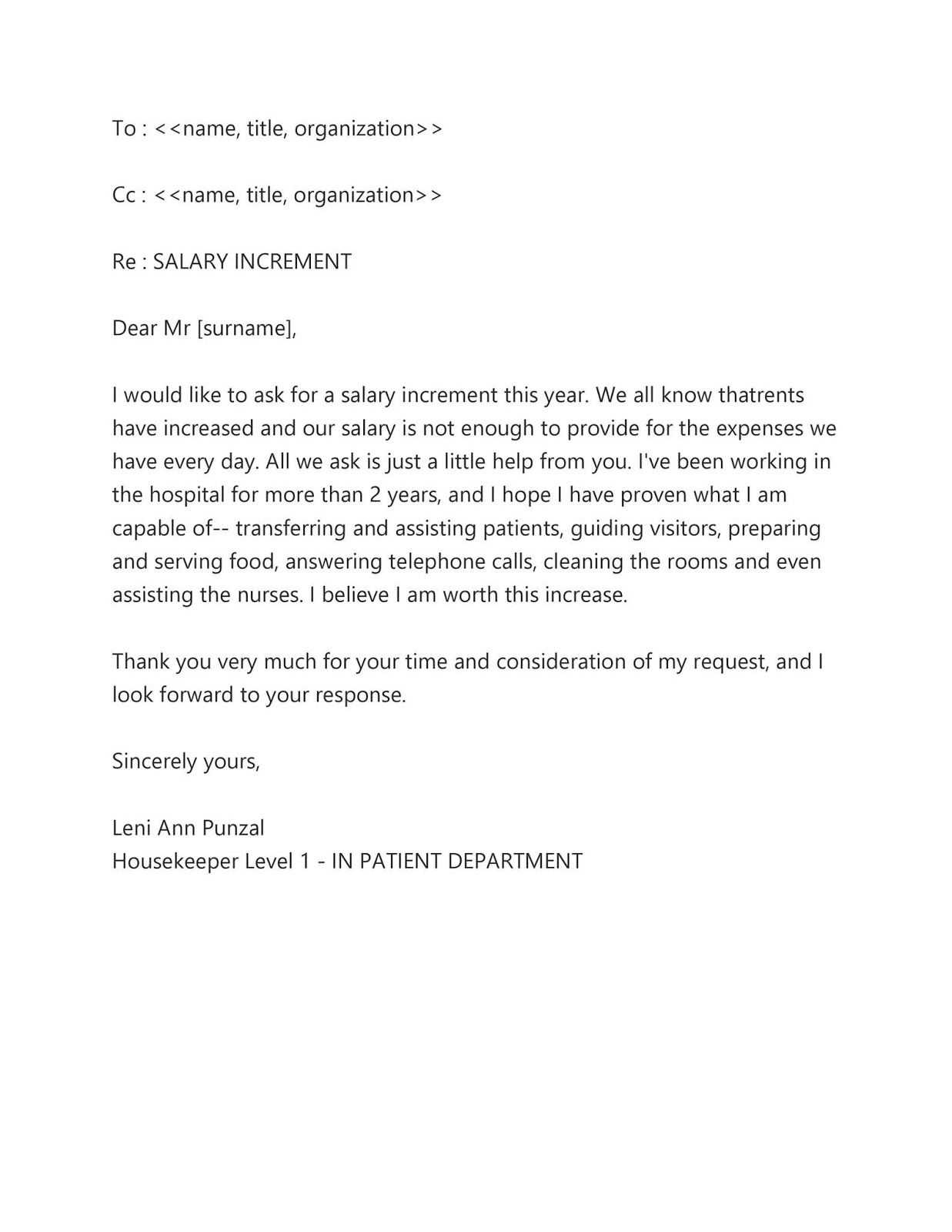
Timing plays a key role in the success of your proposal. The best times to present your case include:
- After a successful project: If you’ve recently completed a major project or contributed to the company’s success, this is an ideal time.
- During performance reviews: Annual or semi-annual reviews are often an appropriate time to discuss compensation adjustments.
- When taking on additional responsibilities: If you’ve assumed new tasks or leadership roles, use this as an opportunity to highlight your increased value to the company.
How to Follow Up
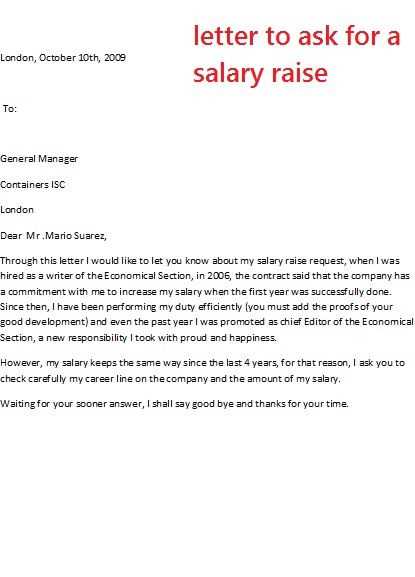
If you don’t receive an immediate response, it’s important to follow up professionally. After submitting your proposal, allow a reasonable amount of time for review. If you haven’t heard back, politely inquire about the status of your request. Remain courteous and show appreciation for the opportunity to discuss your compensation.
Sample Scenarios for Reference
Below are examples of how you might approach the situation based on different circumstances:
- Performance-Based Request: If you’ve exceeded your targets or completed a significant project, emphasize your accomplishments and contributions to the company’s success.
- Promotion or Role Change: If you’re taking on more responsibilities, highlight how your new role warrants a compensation adjustment.
- Market Research: If your salary is below industry standards, reference data showing typical compensation for similar roles in your field.
How to Craft a Formal Salary Adjustment Proposal
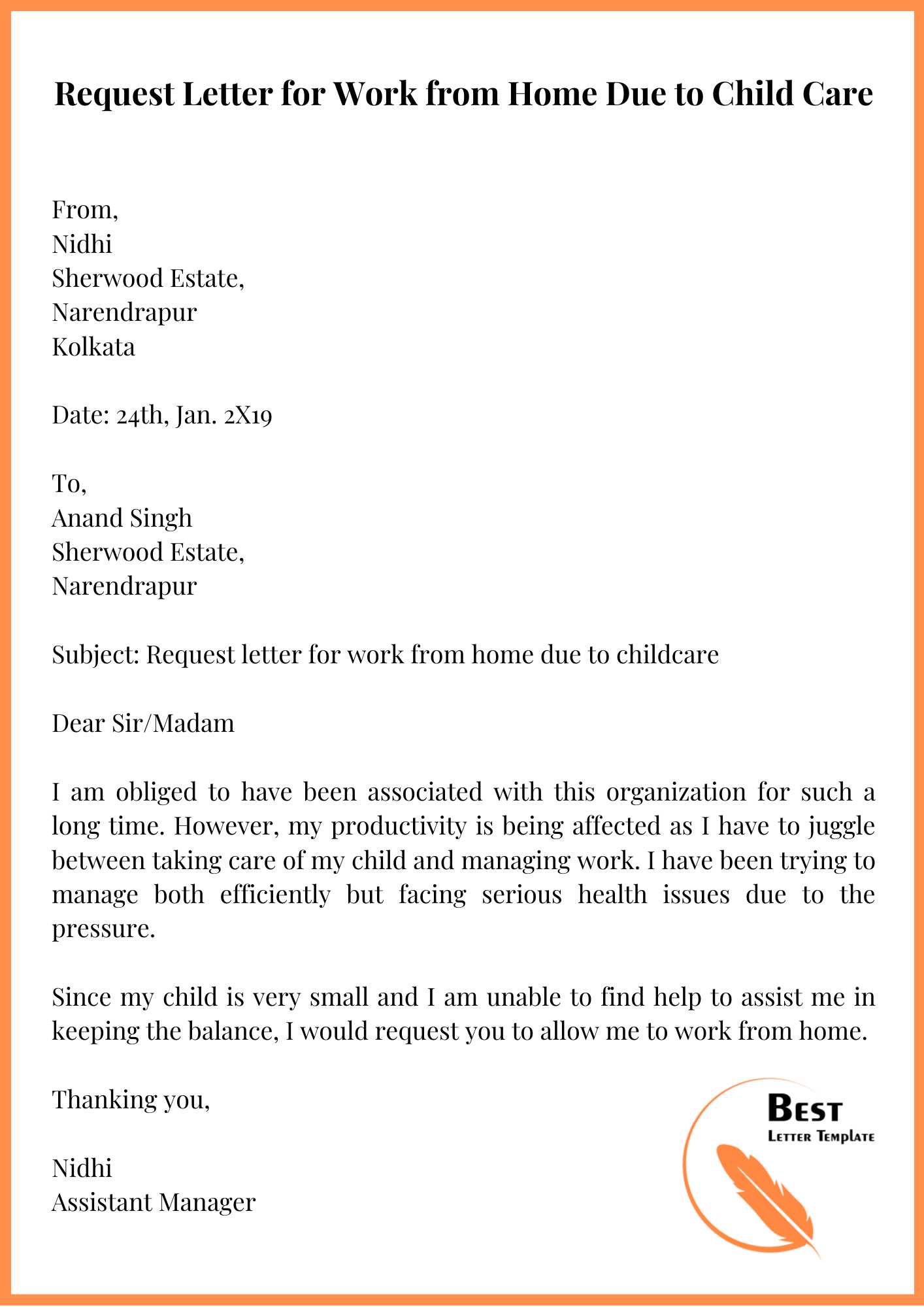
Asking for a salary increase is a delicate yet important step in advancing your career. When approaching this task, it’s essential to construct a thoughtful, clear, and compelling message. A well-organized proposal will ensure that your value is communicated effectively, making the process smoother for both you and your employer.
To build a convincing proposal, consider the following essential components:
- Justification: Clearly outline the reasons behind your request, whether it’s due to increased responsibilities, notable achievements, or the value you bring to the organization.
- Clarity: Make sure your proposal is straightforward and easy to understand. Avoid ambiguity and ensure your intentions are transparent.
- Professional Tone: Maintain a respectful, professional tone throughout the document, keeping it business-like and polite.
In the process of writing, it’s crucial to avoid certain pitfalls that could harm your chances:
- Being Vague: Do not leave your intentions unclear. Make your request specific and well-supported with evidence of your accomplishments.
- Overemphasizing Personal Circumstances: Keep the focus on your professional growth and contributions rather than personal financial needs.
- Underestimating the Industry Standard: Research the typical salary range for your role and ensure your request aligns with market expectations.
When asking for a salary increase, it’s crucial to choose the right approach to increase your chances of success:
- Timing: Submit your proposal after completing a significant project or during an annual review to ensure it’s well-received.
- Framing: Frame your request as a recognition of the value you provide rather than an entitlement.
- Realistic Expectations: Make sure the amount you’re asking for is reasonable and justifiable based on your contributions and industry standards.
Once you’ve submitted your proposal, it’s important to follow up appropriately:
- Give Time: Allow sufficient time for your employer to review and consider your request before following up.
- Respectful Inquiry: After a reasonable period, politely inquire about the status of your request and express your continued interest in discussing it.
Here are a few examples of how you might present your case in different scenarios:
- Achievement-Driven Proposal: Focus on a recent accomplishment, such as completing a high-impact project, and how it benefited the company.
- Role Expansion Request: If your responsibilities have increased, explain how your additional tasks justify a salary review.
- Market-Based Request: If you find that your salary is below market average, present relevant industry data supporting a salary adjustment.